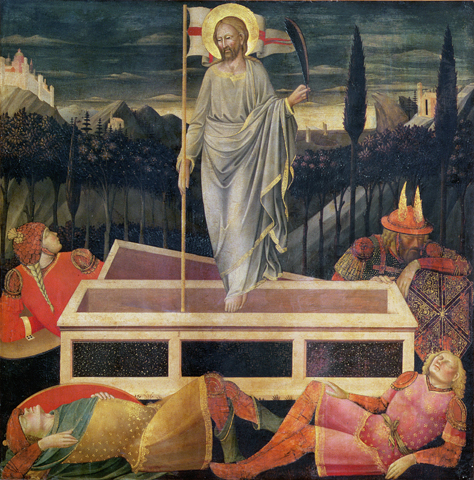excreationist
Married mouth-breather

Can you question the Resurrection and still be a Christian?
The Resurrection is interpreted is the source of some of the deepest rifts in Christianity -- and a stumbling block for some Christians and more than a few skeptics.
Did Jesus literally rise from the dead in a bodily resurrection, as many traditionalist and conservative Christians believe? Or was his rising a symbolic one, a restoration of his spirit of love and compassion to the world, as members of some more liberal brands of Christianity hold?
......
Retired Episcopal Bishop John Shelby Spong, best known for his famously liberal interpretation of Christianity, does not adhere to Rivett's literal view of the Resurrection. His 1995 book, Resurrection: Myth or Reality?, caused a dust-up when it asked, "Does Christianity fall unless a supernatural miracle can be established?"
For Spong, 82, the answer is an emphatic no.
"I don't think the Resurrection has anything to do with physical resuscitation," he said. "I think it means the life of Jesus was raised back into the life of God, not into the life of this world, and that it was out of this that his presence" -- not his body -- "was manifested to certain witnesses."
The Baptist minister Martin Luther King Jr also didn't believe in a physical resurrection...
Though I believe I'm probably in a simulation I don't believe in miracles like the resurrection. I think stories of Jesus' resurrection could be based on mistaken identity.... e.g. in Mark 6:14 Herod thought that Jesus was John the Baptist back from the dead while others believed that Jesus was Elijah. That goes to show in the Bible that a person could be considered to be resurrected even if they looked different.
There is also this event where 6000 people believed they saw Jesus:

V: Jesus in Nairobi, Kenya, 1988
________________________________________________________________________ Compare the photos of Jesus and me to see the resemblance! My previous self, Jesus, was briefly sent to Earth in 1988 –…
It doesn't look like Jesus in the photos but for the 500 witnesses there is no photo so we don't know whether it looked like Jesus either.
What do people think of "Christians" who don't believe in a physical resurrection? Do you like them more than normal Christians? Many Christians would believe that those who don't believe in a physical resurrection aren't saved....

